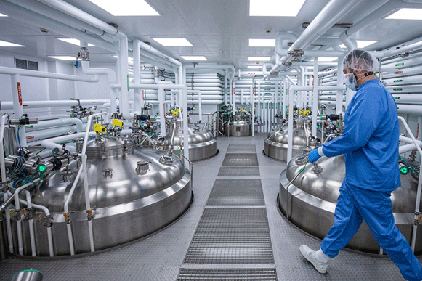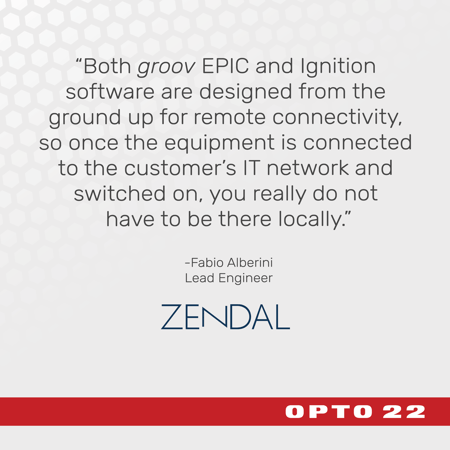See how Zendal overcame multiple challenges of cybersecurity, incompatible equipment, lockdown, logistics, and remote teams.
During the year 2020, dozens of companies worldwide worked to develop vaccines for the pandemic-causing virus COVID-19. Biofabri, a subsidiary of Spanish international biopharmaceutical group Zendal, became responsible for industrial production of the antigen vaccine for most of Europe.
Their task was daunting. Somehow they would have to construct and automate a new fill-and-finish facility during a worldwide pandemic, in a country with one of the strictest lockdowns. Logistics were soon in chaos, with even basic supplies unavailable. Zendal had a variety of older equipment in place with incompatible controllers and individual HMIs. They also had no control over the make or model of PLCs that package suppliers would provide with new equipment.
And towering over all other problems were issues of cybersecurity.
This new groov EPIC case study explains how Zendal overcame these challenges and more to successfully complete their new facility in time.
The case study covers:
- How production engineering, maintenance, and IT departments worked together to construct a more secure platform for production control
- Why system integrator Optomation and Zendal chose Opto 22 and Inductive Automation as the ideal hybrid solution
- What future projects this technology paved the way for
You can read the complete case study on our website or download your own PDF copy.
Interested in seeing how other industries and applications meet their challenges? Visit the groov Case Studies Library.


